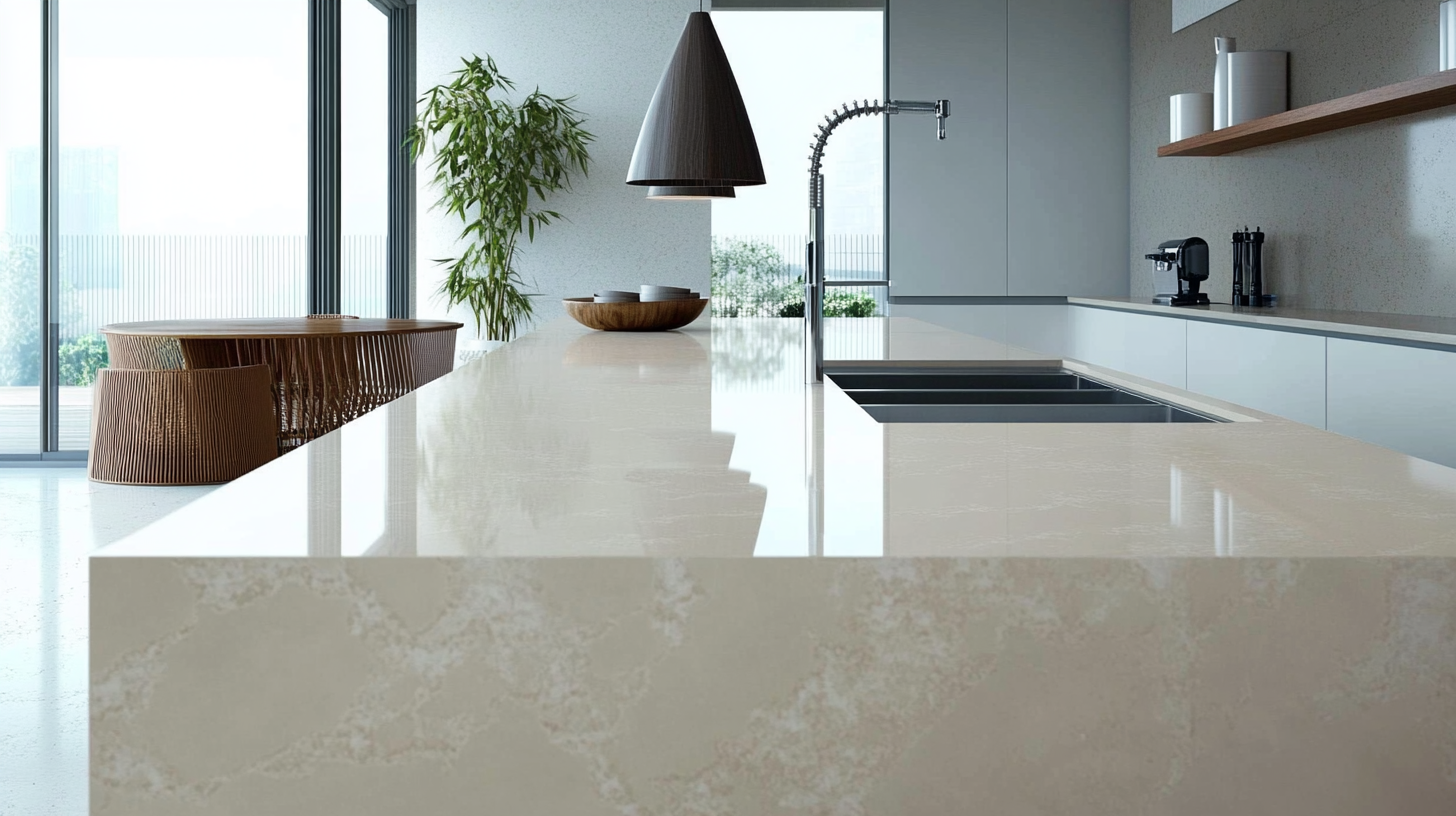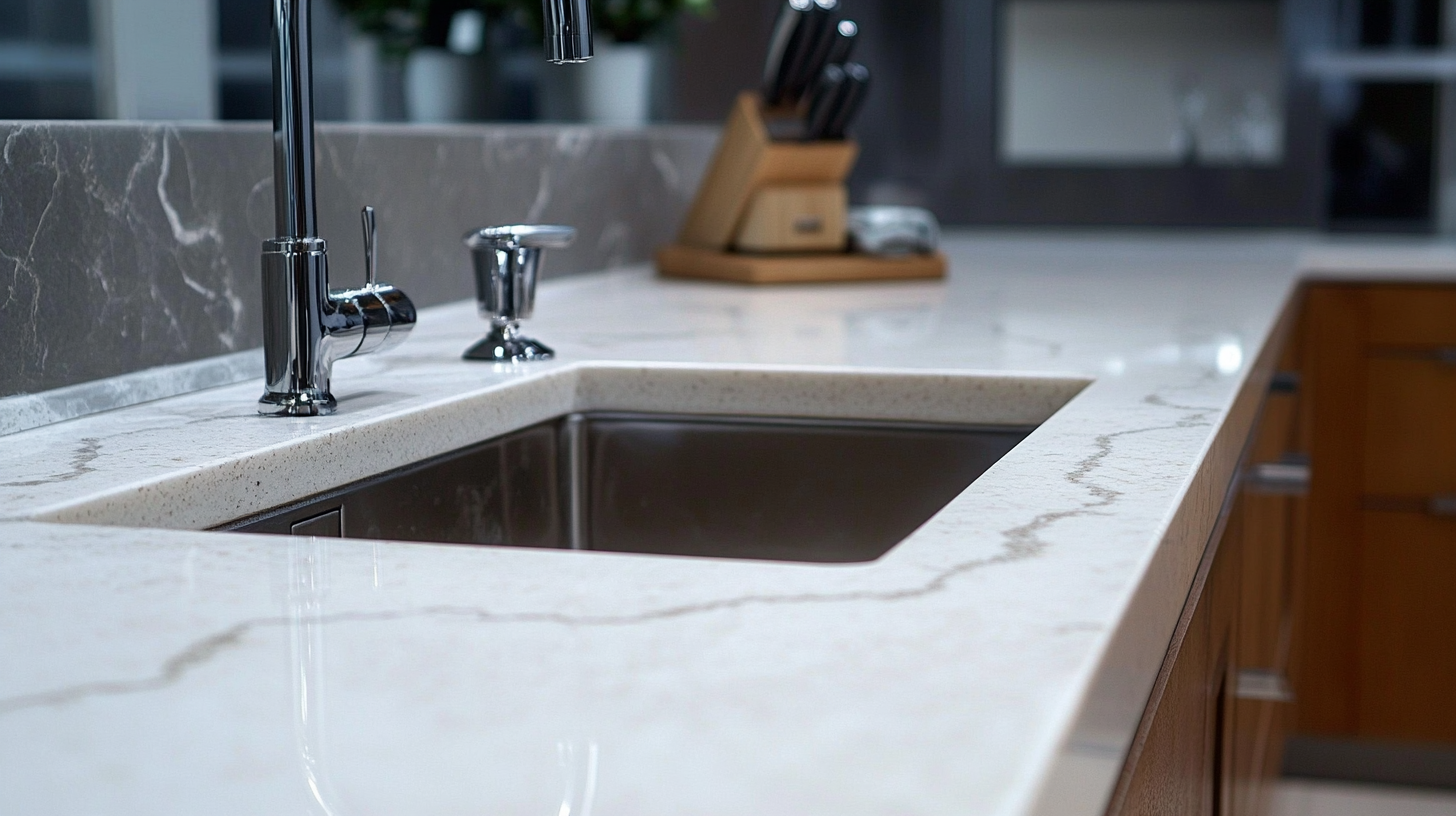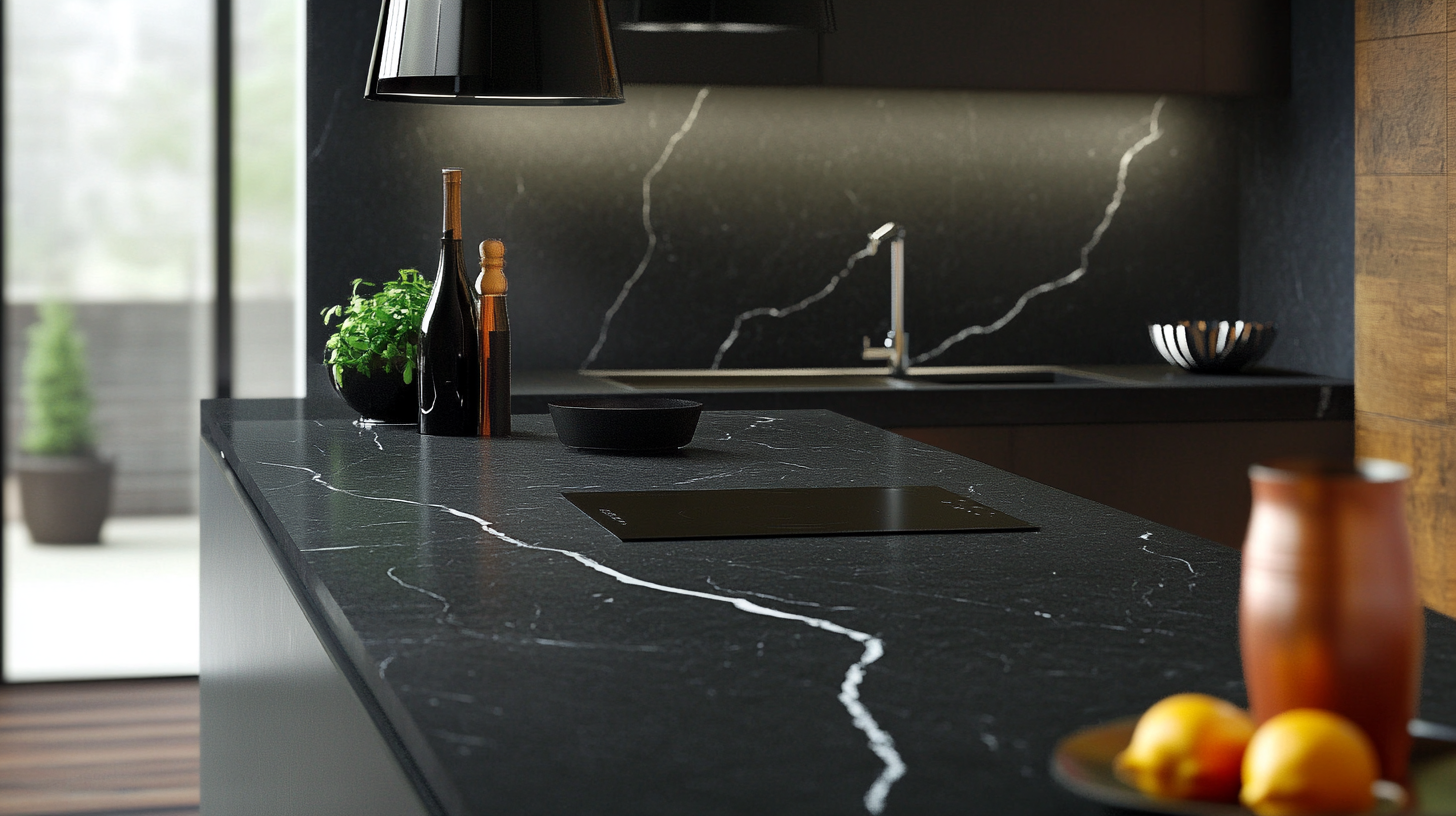Blog
Elevate Your Space with Best Countertop Quartz from China Innovating Quality for Global Success
In today's competitive marketplace, the importance of high-quality materials cannot be overstated, particularly when it comes to home design and renovation.
 Countertop quartz has emerged as a preferred choice for homeowners and designers alike, combining elegance and durability to elevate any space.
As global demand for this versatile material increases, it's essential to understand the nuances of import and export certifications within the industry.
This blog will explore the best countertop quartz options sourced from China, renowned for their innovating quality and craftsmanship.
We will delve into not only the top products available but also the necessary certification processes and best practices for importing countertop quartz, ensuring that you make informed decisions for your next project.
By understanding these key elements, you can confidently enhance your environment with exquisite countertop quartz that stands the test of time.
Countertop quartz has emerged as a preferred choice for homeowners and designers alike, combining elegance and durability to elevate any space.
As global demand for this versatile material increases, it's essential to understand the nuances of import and export certifications within the industry.
This blog will explore the best countertop quartz options sourced from China, renowned for their innovating quality and craftsmanship.
We will delve into not only the top products available but also the necessary certification processes and best practices for importing countertop quartz, ensuring that you make informed decisions for your next project.
By understanding these key elements, you can confidently enhance your environment with exquisite countertop quartz that stands the test of time.
The Rise of Quartz Countertops: Transforming Spaces with Elegance
As the home improvement industry continues to evolve, quartz countertops have emerged as a top choice for homeowners and designers alike, transforming kitchens and bathrooms into elegant, functional spaces. According to a recent report by Freedonia Group, the demand for countertop surfaces is projected to reach $4 billion by 2024, with quartz accounting for over 50% of the market share. This surge in popularity can be attributed to quartz's durability, low maintenance, and a wide array of design options, appealing to a variety of aesthetic preferences.
The versatility of quartz extends beyond its practical benefits. With advances in production techniques, manufacturers from countries like China are innovating in design and quality, allowing for unique patterns, colors, and textures that mimic natural stone. Research from Mordor Intelligence highlights that the global quartz countertop market is expected to grow at a CAGR of 5.3% from 2021 to 2026, driven by growing consumer preferences for sustainable and high-quality materials. As quartz continues to rise in prominence, it not only elevates the aesthetic of a space but also represents a smart investment in long-lasting quality.
Elevate Your Space with Best Countertop Quartz from China Innovating Quality for Global Success
| Color | Thickness (inches) | Finish Type | Durability Rating | Price Range (per sqft) |
|---|---|---|---|---|
| Carrara White | 1.0 | Polished | High | $50 - $70 |
| Midnight Black | 1.5 | Matte | Medium | $60 - $80 |
| Ocean Blue | 1.0 | Polished | High | $55 - $75 |
| Desert Sand | 1.0 | Textured | Medium | $45 - $65 |
| Forest Green | 1.5 | Polished | High | $70 - $90 |
Innovative Technologies Shaping the Future of Quartz Production
In the evolving landscape of countertop quartz production, innovative technologies are at the forefront of transforming the industry and enhancing quality. The integration of advanced manufacturing techniques is revolutionizing how quartz surfaces are produced, leading to superior durability and aesthetic appeal. Companies are increasingly adopting smart technologies and automation, driving efficiency and ensuring consistent product quality that meets global standards.
Moreover, the shift towards sustainability is reshaping production practices. Stakeholders are recognizing the importance of environmentally friendly methods, prompted by the growing demand for sustainable materials across various sectors. This commitment not only supports the environment but also aligns with consumer preferences for eco-conscious products. As the quartz production industry advances, its ability to innovate in technology and sustainability will significantly influence its global success, creating a ripple effect across related sectors, from construction to design.
Key Benefits of Choosing Quartz for Your Home and Business
When considering materials for countertops, quartz stands out as a premier choice for both residential and commercial spaces. This engineered stone boasts remarkable durability, designed to withstand the rigors of daily life. According to a report by Freedonia Group, the global demand for quartz countertops is projected to achieve a compound annual growth rate (CAGR) of 4.4% through 2023. This trend highlights the increasing preference for quartz due to its resistance to scratches, stains, and heat compared to traditional materials like granite or laminate.
In addition to its resilience, quartz countertops offer a wide range of aesthetic options. With advancements in design technology, manufacturers are now able to create stunning visuals that mimic natural stone, providing an upscale look without the maintenance. The National Association of Home Builders notes that about 70% of homeowners are opting for quartz in their kitchen renovations, a testament to its growing popularity. Moreover, quartz is a non-porous material, which inhibits the growth of bacteria, making it an excellent choice for both kitchens and bathrooms in terms of hygiene and cleanliness. These factors make quartz not just a fashionable option, but a smart investment for enhancing your space.
Trends to Watch in 2025: Designing with Sustainable Quartz Solutions
As we look ahead to 2025, the design world is iterating on the importance of sustainability, particularly in the context of materials like quartz. The trend towards using sustainable quartz solutions is not just about aesthetics but also about making a positive environmental impact. Homeowners and designers alike are increasingly recognizing the value of quartz that is sourced and manufactured with eco-friendly practices. This shift opens doors to innovative designs that marry beauty with responsibility, creating spaces that reflect a commitment to a greener future.

Incorporating sustainable quartz into design projects allows for versatility without sacrificing quality. From stunning countertops to elegant backsplashes, the hues and textures available in sustainable quartz can enhance any space while adhering to eco-conscious principles. As manufacturers in China innovate and refine their processes, they present opportunities for global designers to access high-quality materials that are both stylish and sustainable. This synergy not only supports ethical consumption but also fosters a sense of community among designers who prioritize environmental integrity in their work.
Quality Assurance: What to Look for When Sourcing Quartz from China
 When sourcing quartz countertops from China, quality assurance is paramount. It's essential to know the key factors that guarantee you are investing in high-quality materials. First, inspect the certification of the manufacturer. Look for ISO certifications or other industry-specific standards that can vouch for their production quality and processes. This demonstrates a commitment to maintaining consistent high standards.
When sourcing quartz countertops from China, quality assurance is paramount. It's essential to know the key factors that guarantee you are investing in high-quality materials. First, inspect the certification of the manufacturer. Look for ISO certifications or other industry-specific standards that can vouch for their production quality and processes. This demonstrates a commitment to maintaining consistent high standards.
Another critical aspect to consider is the raw material used in the production of quartz countertops. Ensure the supplier uses 93% natural quartz combined with resins and pigments for durability and a flawless finish. Request samples of their products to examine the texture, color consistency, and overall craftsmanship.
Tips: Always opt for suppliers who provide transparency about their sourcing and manufacturing processes. Establishing a relationship with the supplier can also lead to better quality control and service. Finally, don't hesitate to conduct third-party inspections before finalizing orders, as this can save you from potential issues down the line.
